- Home
- Conn Iggulden
Wars of the Roses: Bloodline: Book 3 (The Wars of the Roses) Page 28
Wars of the Roses: Bloodline: Book 3 (The Wars of the Roses) Read online
Page 28
It had to be done. Elizabeth had opened his eyes to the influence of the Neville family on the English court, how they had insinuated themselves into every nook and cranny. It was astonishing how often lucrative posts were held by unremarkable men and women, who just happened to have Neville parents or grandparents. Elizabeth described it as ‘the rot’, though she had been intrigued by how it had been accomplished.
Edward chuckled suddenly, making the men with him look up from their patient stances. His wife was a wonder, a private joy that came from her adoration of him, her delight in his every part. They laughed easily, and if his lords thought she had caught him by her thighs, well, he could not completely disagree. Yet all the while he understood Elizabeth would do anything to protect him – there was no one else in the world whose interests were so completely his own. She had said so a thousand times. No one else could deserve his complete trust, for they had motives and loves and friendships apart from him. Elizabeth was devoted to her king, her lover and her husband, for the children and the crown.
He looked up at the open door of the Charing Cross inn, which occupied a fine position on the coach road west and was well known for its food. The innkeeper had been warned he would receive the king. He stood bowed over, unable to rise.
Edward dismounted slowly, his thoughts still on his wife. She was right, of course. If a gardener discovered a vine had grown all around his borders, through every hedge and bush and bloom, he would not ignore it. He would cut the root and tear it out, curl by writhing curl, to be thrown on the fire. That was what she wanted.
To have so many Nevilles in the great offices of the realm meant that Edward ruled only with their support. He had discussed it endlessly with Elizabeth, until he saw the vine clinging to every estate and noble family from the south coast to the border of Scotland.
Poor King Henry had never seen how far they had grown, how coiled and strong the vine had become. Of course he had not. Edward, too, had been blind to the extent of the influence of men like Warwick and Earl Sir John Neville of Northumberland; of Fauconberg, Earl of Kent; of the Duke of Norfolk, with his Neville mother; of George Neville, the Archbishop of York. King Edward clenched his jaw as he looked up at the windows of the inn on the crossroads. Elizabeth had painted an appalling picture for him. Was he to rule only as long as he did not cross Neville interests? He would not allow such a thing, now he had become aware of it. Even if he held back from the bonfire Elizabeth wanted to see, it would do no harm to trim some part of that dark growth.
Archbishop George Neville walked out of the tavern door, drawn down by the news echoing round the rooms that the king himself stood outside. All movement had ceased around them for hundreds of yards as passers-by froze to watch the young man who ruled England.
The archbishop had knelt before to the king, at Edward’s coronation. He wore a fine cloak and robes beneath, but when he saw the king had truly come, he did not hesitate, approaching Edward and dropping to one knee. There was the look of wolves on the knights around the king. More than one had touched a hand to his sword hilt as the archbishop came close. George Neville kept his head bowed until Edward murmured for him to rise.
‘So many men and horses,’ the archbishop said softly. ‘I am your servant, Your Highness. What would you have of me?’
Although George Neville was a head shorter than the king and was a man of the church, he was as broad-shouldered as any of the knights present. Standing straight, he gave them no sign of guilt or fear, but merely returned their stares with steady calm.
‘I have come to retrieve the Great Seal, Your Grace,’ Edward said. ‘You may hand it to Robert Kirkham here, the Master of the Rolls. He will keep it safe.’
George Neville paled, his eyes growing large in his shock.
‘Am I then to be dismissed as your chancellor, Your Highness? Have I offended? Have I failed in my duties?’
He could see Edward was growing uncomfortable, a mottled stain of anger spreading across his face and neck.
‘You have not, Your Grace. I have merely decided to pass the Great Seal to another.’
‘Who, then, will assign judges and courts to the cases already brought before me? Whom shall I tell the penitents to approach, Your Highness? I … I cannot understand …’ George Neville looked around at the knights watching him balefully. ‘Armed men? Did His Highness think I would resist? I gave an oath of fealty at your coronation!’
Edward flushed further. He had imagined fury and manipulation, not the raw hurt he saw in the archbishop. The king set his jaw and said nothing, watching as the outrage faded and George Neville’s shoulders dipped.
‘Marren!’ the archbishop called. ‘Fetch the king’s seal to me. You will find it in the leather satchel marked with a gold crest. No, bring the satchel as well, if it is to be taken away.’
His servant raced back into the inn, clattering up the stairs and vanishing into his suite of rooms. In the street, George Neville had recovered his dignity. The king still stood in sullen silence, waiting. Around them had gathered a crowd of staring faces, men and women and children, all delighted or in awe.
‘I do not dispute your right to have any chancellor you please,’ the archbishop said in a murmur. ‘Yet I suspect you have been misinformed.’ He waved a hand at the armed knights standing with cold menace all around. ‘I am a man of God and a loyal subject. Until this moment, I was also the chancellor of England. I remain loyal – and a man of God. That is unchanged.’
Edward inclined his head, accepting the point, though he did not reply to it. The archbishop’s servant came skidding back across the muddy road, bearing a satchel on a wide strap over his shoulder. Edward passed it to the Master of the Rolls, a man too embarrassed to do more than grunt an affirmative as he checked the contents.
With sharp and jerky movements, the king and his knights remounted. The crowd parted in haste as they realized Edward was leaving. The archbishop was left staring as they turned their mounts and cantered east, towards Ludgate and the city of London, taking the Great Seal with them.
26
The Palace of the Louvre was about as impressive as it was intended to be, three times the size of the Tower of London even before the vast gardens were taken into account. When Paris had been under English occupation, the Louvre had been left almost empty, with just a small part used as stables and a residence for the king’s lieutenant and governor.
All that was past, Warwick thought ruefully – and he would surely not live to see such days return. It had been almost heartbreaking to ride through countryside that could so easily have been Kent or Sussex or Cornwall. Normandy and Picardy looked so very much like southern England, it was surely no surprise that English kings had taken it for themselves once or twice. Warwick smiled at his own reflection in the window, looking out at ornate hedges stretching for what looked like miles along the banks of the Seine. Such thoughts were out of place, with so much expected of him.
The presence of the young Duke of Clarence had not hurt his cause at all, Warwick was prepared to admit. From the moment their arrival in the French capital had been formally announced, King Louis and his most senior courtiers had spared neither expense nor flattery of King Edward’s representatives. The mere presence of King Edward’s own brother was greeted with flushed pleasure, as if sending Clarence was proof of a new English will to seek peace and legal trade. It helped that the young duke spoke excellent French, though at Warwick’s urging, Clarence limited himself to compliments on the palace and the city.
King Louis was an early riser, it seemed. To do him the courtesy of waiting on his royal presence, Warwick had to get up long before dawn, trotting through the misty streets of Paris, just as that ancient city was coming alive. He had fallen into the habit of stopping at a bakery in a street not far from his lodging house, tearing pieces of hot bread from a loaf while he rode. The majority of his knights were lodged around the city, leaving Warwick with just two veterans, the Duke of Clarence and two servants to accompa
ny him into the royal palace each morning. In other years, Warwick knew he might have been forced to wait entire days, but miraculously he had grown used to just a little delay as the king broke his fast and was bathed and perfumed, appearing with his hair oiled and his velvets brushed. Warwick had been flattered by the king’s genial attention, greeting him each morning almost as if they were friends.
The doors at the end of the hall crashed back, a signal for all guards and servants to stand straight. The herald began the recitation of King Louis’s many titles and honours and Warwick and Clarence went down on one knee, a perfect pair of English courtiers in all their finery.
Through the heralds the French king strolled, his great red robe of state carried by a host of tiny boys in matched costumes of blue and white. Around him came a dozen of his thin-faced scribes, who recorded every word he uttered, scratching with their quills in a language all their own to match the speed of his speech. Warwick had been present when one of them had fainted two days before. That fellow was nowhere to be seen, replaced no doubt by one who could keep up with the torrent. King Louis loved to talk, though it was never empty chatter. Warwick found he spilled words like a fisherman with a lure, watching all the time to see if anything would rise from the depths.
‘Up, my fine English lords who rose before the sun to greet me this morning! Have your appetites been sated, gentlemen? Your thirsts allayed?’
A true answer was not expected and Warwick and Clarence only nodded and bowed as the king swept past them. They stood in absolute silence as the court assembled around its heart, appearing out of side doors while Louis settled himself at the head of his black marble table. It had some significance, Warwick had learned, though he did not know what it was. He had noticed it was rare for anyone to pass the thing without reaching out to touch the stone, whether for luck or as a relic, he had not asked.
Fruit was brought and more chairs, with eight or nine strangers appearing to whisper into the king’s ear. It might have been a dumbshow to impress the guests, though Warwick sensed there were serious matters being discussed in front of him, information brought to the king and his responses delivered behind guarding hands.
A full hour passed, possibly two, without Warwick or Clarence showing the least sign of fatigue or boredom. Once Warwick had turned it into a private challenge, it had become a game between them, so that they were able to meet each other’s eyes with only mild interest and hidden humour, no matter how long the delay.
‘Gentlemen! Approach me, please. Here, here. Come, come. Oh, I am desolate to have kept you waiting for such an age. Chancellor Lalonde will be present to advise me, of course.’ The king eyed the old man as if daring him to respond. The chancellor stared back, hunched over his cane. ‘You know, gentlemen, I rise each morning with the knowledge that one day Lalonde will be absent, missing from the rolls. I grieve in advance, if you follow me, imagining the sorrow I will surely feel, as if I can somehow reduce the pain of it by experiencing it early.’
‘I suspect you will grieve for him even so, Your Majesty,’ Warwick said. ‘I have learned that time can steal away the sting of the cut, but it does little for the deeper wound.’
King Louis looked from Warwick to Clarence for what seemed a long time, for once oddly silent. He raised a single finger and wagged it back and forth before pressing it to his lips.
‘Ah. Your father. Earl Salisbury. And of course, milord, that great man and friend to this house, the Duke of York. You have both been tempered by pain, by loss. That is the English word? Made stronger, like metal in a forge. You know, when my father passed from the world, he and I were not … reconciled, if you understand. He appeared to see me as a threat, a misjudgement of character that was most unlike him. He thought I was wasting my talents. Still, I miss him.’
With no warning, the king’s eyes grew bright with tears and he choked, tended instantly by servants bringing him water, silk cloths and wine. In another moment, the signs of grief had vanished, his gaze cold and as sharp as a spur.
Warwick could only bow his head in response, once more struck by the odd sensation of being watched by a man who was actually looking at him, as if the eyes were opaque coloured glass and the flood of thoughts and words were all to conceal the true king within, peering out.
‘I saw in you, my lord Warwick, a man of sensibility, from the first moment. A man, if you will forgive my flattery, who would be worth my time and who might repay my trust. You came to me without guile or games, to state your desires for trade and peace in that wonderfully frank English way, all laid out like beans on a drumhead, to be counted and swept up, or refused. My father detested you all, as I am sure you will understand, given that English clods and farmers strolled along his streets as if they owned them.’
Warwick smiled, waiting for the question or the point that he knew by then would surely follow.
‘I am now faced with a choice, milord Warwick, as to your character, a choice that brings me pain. I must decide, before you leave my presence here today, whether you are a fool and a dupe, or whether you are part of the machinations and strategies of your court at home!’
To Warwick’s astonishment, the king stood up from his seat and raised a finger to point at him, the king’s face darkening with every appearance of rage. The man of silks and philosophical musing had vanished into spittle-flecked fury.
It was so appallingly sudden, Warwick had to struggle with every nerve and muscle in his body not to laugh. There was something magnificently comical in the swollen royal bladder before him, for all Warwick’s life hung in the balance.
The wild urge to destroy himself faded, leaving him weak and shaking.
‘Your Majesty, I do not understand …’
‘Dupe, then? You know, that is not your reputation, Richard Neville – a man who has walked a failed king to his cell in your Tower of London. Does your King Edward think to intimidate me with you? Does he intend me to read some threat from your presence?’
Warwick swallowed in discomfort.
‘That is not his intention, I swear it. If you had met King Edward, Your Majesty, I think you would find he is not a man for such games, for such a labyrinth. By my name and my honour …’
King Louis held up a hand, clean and white.
‘I have sent gifts of gold and silver cups to you, milord. I have demanded of the merchants in Paris that they make no charge on any of your party, not one! That even the whores make themselves available to your men without a single coin in return. I have had the most skilful seamstresses and weavers and dyers in France take the measurements of every man who rode with you from the coast. Why not, milord? They will return home in better clothes than those they brought from England. My master tailors will have shown their wares to English families wealthy enough to order more. You see? Trade is the thread that joins us, not war. The English cry out for better wine than your own poor vineyards, better cloth, better cheese. In return, who knows, there must be something you have that we might want?’
‘Archers?’ George, Duke of Clarence, replied.
Whether his intention was to defend Warwick from the tirade or just a response from insolence and sensitivity to insult, Warwick had no idea. He gripped the young man’s arm briefly, quick as a thought, to quieten him.
‘Your Majesty, I do not understand the source of this anger,’ Warwick went on hurriedly. ‘I suspect there has been some confusion, perhaps a message misconstrued, or some enemy with spite on his lips …’
King Louis squinted at him, looking into his eyes and sighing.
‘I do not believe you have been told, Richard. That is why I am angry – in part on your behalf. What will you do now? Now that your king has made you a fool for a second time? He has you negotiate for a French princess and, swip, snatches it all away from you, saying, “I am married.” And now, milord, he sends you to me once again, to bring about a treaty worth … well, no matter. And while you are in France, he makes his own treaty with the Duke of Burgundy, for trade and m
ore, my lord. More! It is my information that he has agreed a pact with milord the Duke of Burgundy, dear Philip! A pact of mutual protection against France! Such a betrayal … and yet, and yet I fear for you, milord. To be betrayed so by your king! Infamous! Will it be war now between us, do you think? Would that be King Edward’s intention?’
Warwick had stood very still, barely aware of the shifting, gaping young man at his side. He had no cause to suspect a lie from the French king. It was too outlandish, too appalling, to be anything but true. The knowledge showed in his face.
‘Ah, as I said, the dupe,’ Louis went on, almost sadly. ‘I thought so, despite your reputation. Your King Edward risks a great deal in offending me twice, perhaps less so with you.’
‘My brother will have had reason …’ Clarence began.
Warwick rounded on him, snapping out a command to be silent, so that the young man bit off the remaining words.
‘My lord Clarence,’ Louis said, his eyes full of pity. ‘Of course your brother had a reason, as all men do. Burgundy will know you are in Paris, in negotiation with me. I do not doubt spies will report even this conversation, just as they did yesterday and the day before. Pigeons fly all over Paris, all over France. Your brother will have secured excellent terms for his country’s trade and protection, I am certain. The fact is that Burgundy and I have not enjoyed a peaceful friendship in recent years. Perhaps I pushed him into the arms of England. I do not know. Your King Edward has gained his trade route to the whole continent – and in return, he has risked making an enemy of France and perhaps of Warwick and Clarence, eh? Who knows? Kings reach and grasp and then reach again like children, until they find they no longer have the strength. It is the way of things.’
The king’s gaze flickered over Warwick, assessing the complete destruction of his expression, the slack features and eyes lost in inward thought. Louis nodded to himself, his conclusions all confirmed. Warwick had not known.

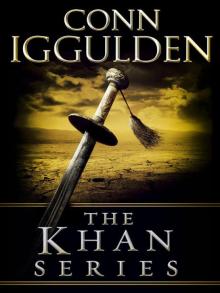 The Khan Series 5-Book Bundle
The Khan Series 5-Book Bundle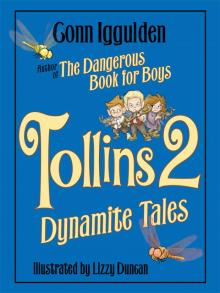 Tollins 2: Dynamite Tales
Tollins 2: Dynamite Tales Tollins: Explosive Tales for Children
Tollins: Explosive Tales for Children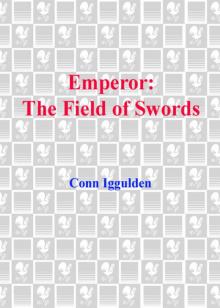 The Field of Swords
The Field of Swords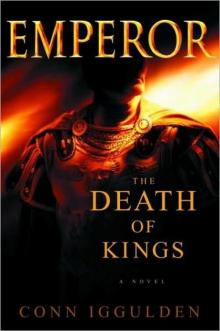 The Death of Kings
The Death of Kings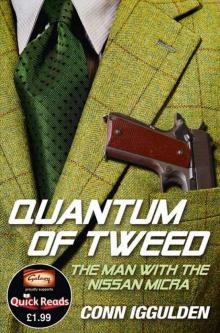 Quantum of Tweed: The Man With the Nissan Micra
Quantum of Tweed: The Man With the Nissan Micra Bones of the Hills
Bones of the Hills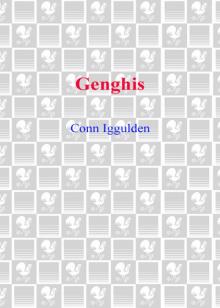 Genghis: Birth of an Empire
Genghis: Birth of an Empire The Gates of Rome
The Gates of Rome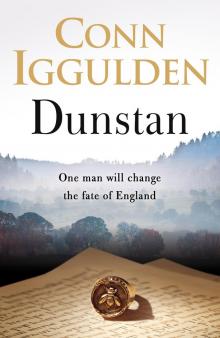 Dunstan
Dunstan Fig Tree
Fig Tree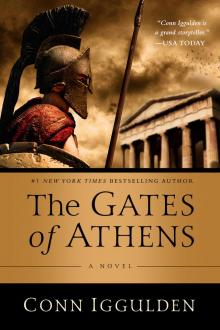 The Gates of Athens
The Gates of Athens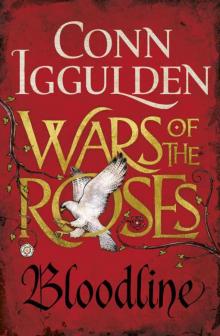 Stormbird
Stormbird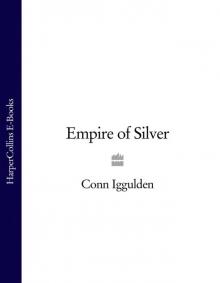 Khan: Empire of Silver
Khan: Empire of Silver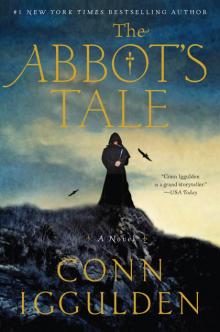 The Abbot's Tale
The Abbot's Tale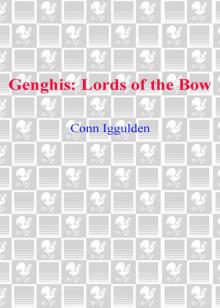 Gengis: Lords of the Bow
Gengis: Lords of the Bow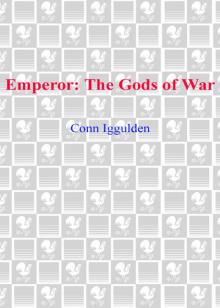 The Gods of War
The Gods of War Blackwater
Blackwater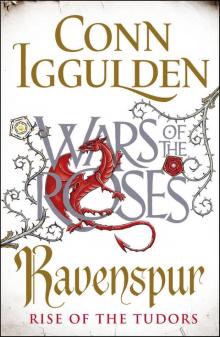 Ravenspur: Rise of the Tudors
Ravenspur: Rise of the Tudors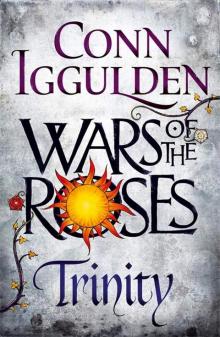 Wars of the Roses: Trinity (War of the Roses Book 2)
Wars of the Roses: Trinity (War of the Roses Book 2) The Gods of war e-4
The Gods of war e-4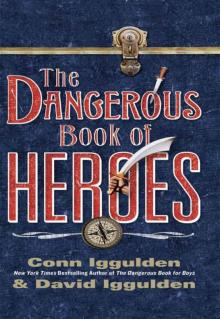 The Dangerous Book of Heroes
The Dangerous Book of Heroes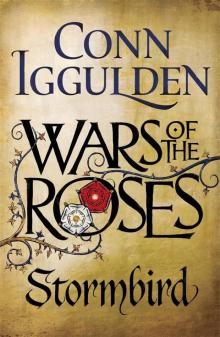 Stormbird wotr-1
Stormbird wotr-1 Emperor: The Death of Kings
Emperor: The Death of Kings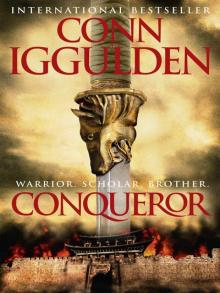 Conqueror (2011) c-5
Conqueror (2011) c-5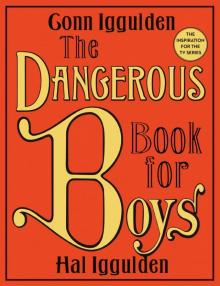 The Dangerous Book for Boys
The Dangerous Book for Boys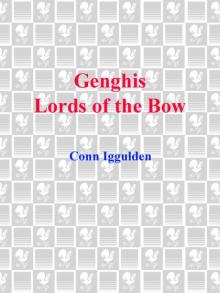 Genghis Lords of the Bow
Genghis Lords of the Bow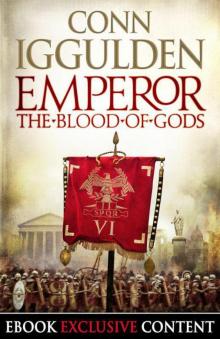 Emperor: The Blood of Gods (Special Edition) (Emperor Series, Book 5)
Emperor: The Blood of Gods (Special Edition) (Emperor Series, Book 5)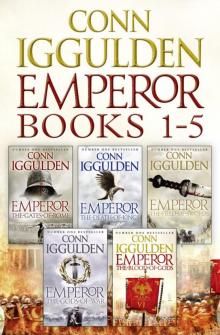 The Emperor Series: Books 1-5
The Emperor Series: Books 1-5 Lords of the Bow c-2
Lords of the Bow c-2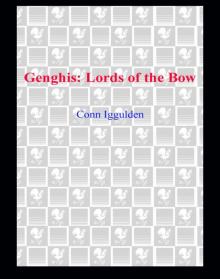 Lords of the Bow
Lords of the Bow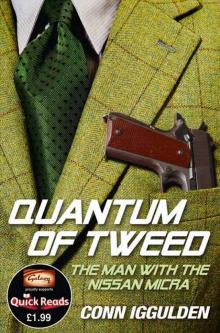 Quantum of Tweed
Quantum of Tweed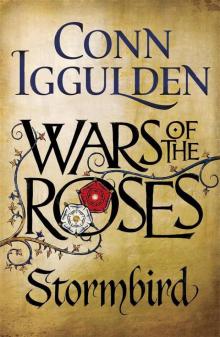 Wars of the Roses 01 - Stormbird
Wars of the Roses 01 - Stormbird Empire of Silver c-4
Empire of Silver c-4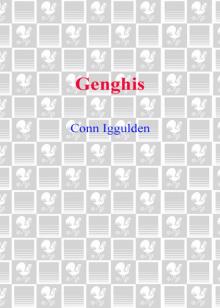 Birth of an Empire
Birth of an Empire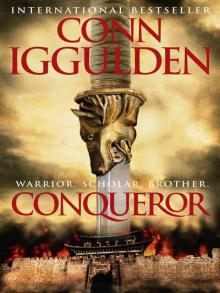 Conqueror (2011)
Conqueror (2011)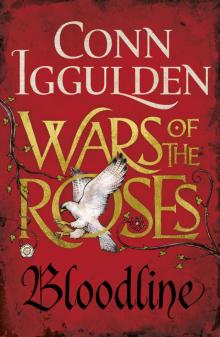 Wars of the Roses: Bloodline: Book 3 (The Wars of the Roses)
Wars of the Roses: Bloodline: Book 3 (The Wars of the Roses) Bones Of the Hills c-3
Bones Of the Hills c-3 Empire of Silver
Empire of Silver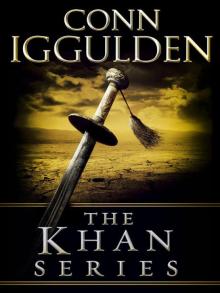 The Khan Series 5-Book Bundle: Genghis: Birth of an Empire, Genghis: Bones of the Hills, Genghis: Lords of the Bow, Khan: Empire of Silver, Conqueror
The Khan Series 5-Book Bundle: Genghis: Birth of an Empire, Genghis: Bones of the Hills, Genghis: Lords of the Bow, Khan: Empire of Silver, Conqueror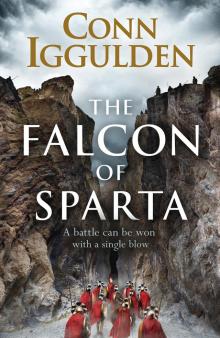 The Falcon of Sparta
The Falcon of Sparta Explosive Tales for Children
Explosive Tales for Children